A Process Built on Reflection for the Music Teacher Coaching As Inquiry:
The Support of a Critical Friend

The Support of a Critical Friend
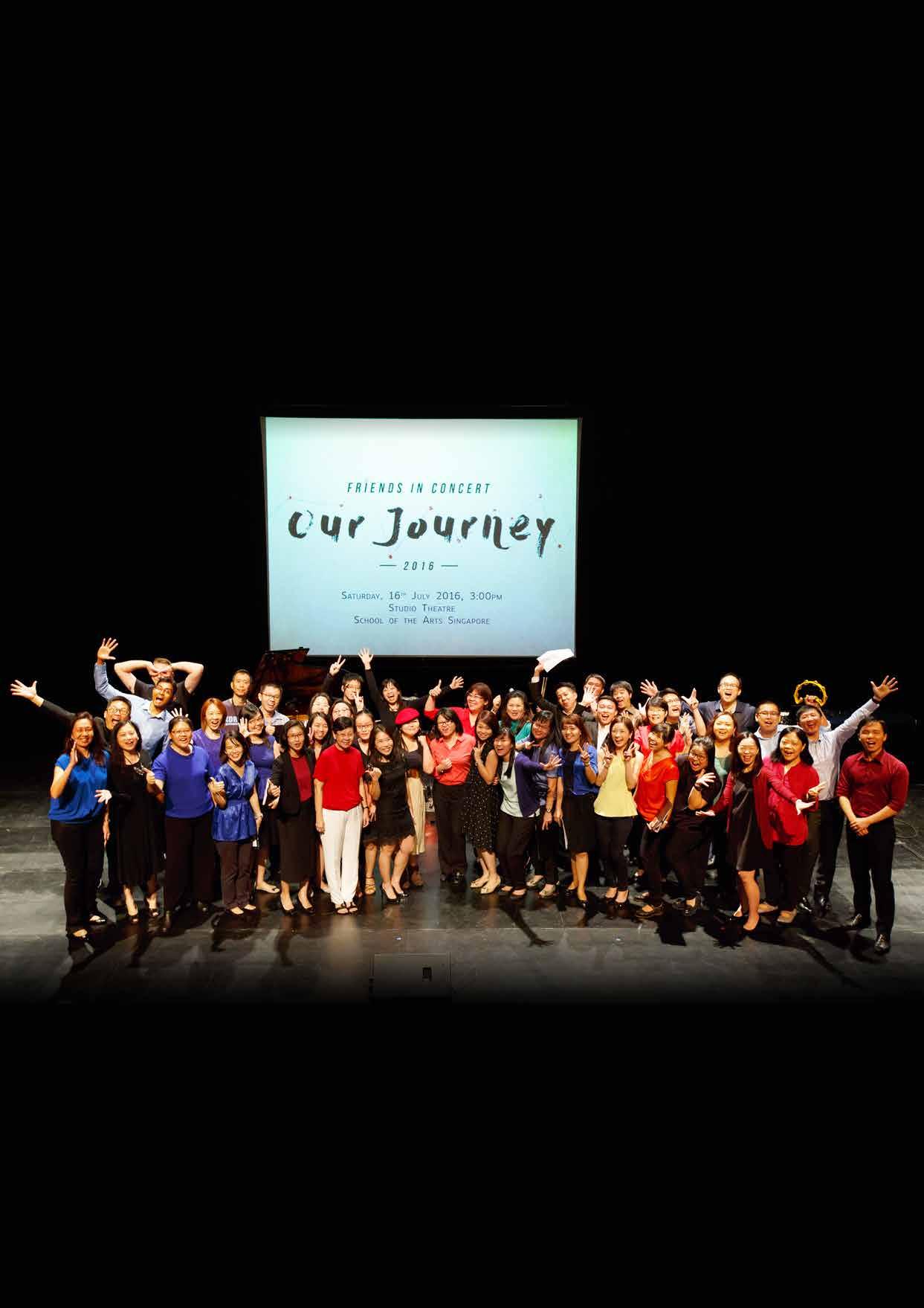
“Every student - and educator, too - needs a trusted person who will ask provocative questions and offer helpful critiques.”
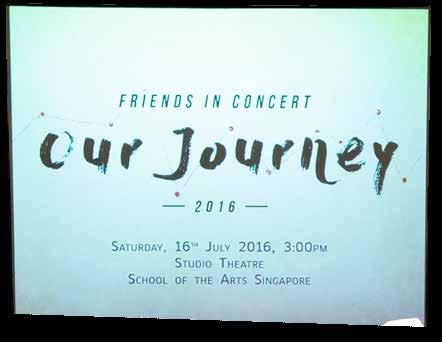
(Costa and Kallick, 1993)
We may have all experienced this: sometimes, professional learning takes place through an insightful conversation with a trusted colleague, mentor or even (unexpectedly!) with students in our music classrooms. These memorable conversations become fodder for deeper reflection, ignition for fresh ideas and energy for renewed confidence in music teaching.
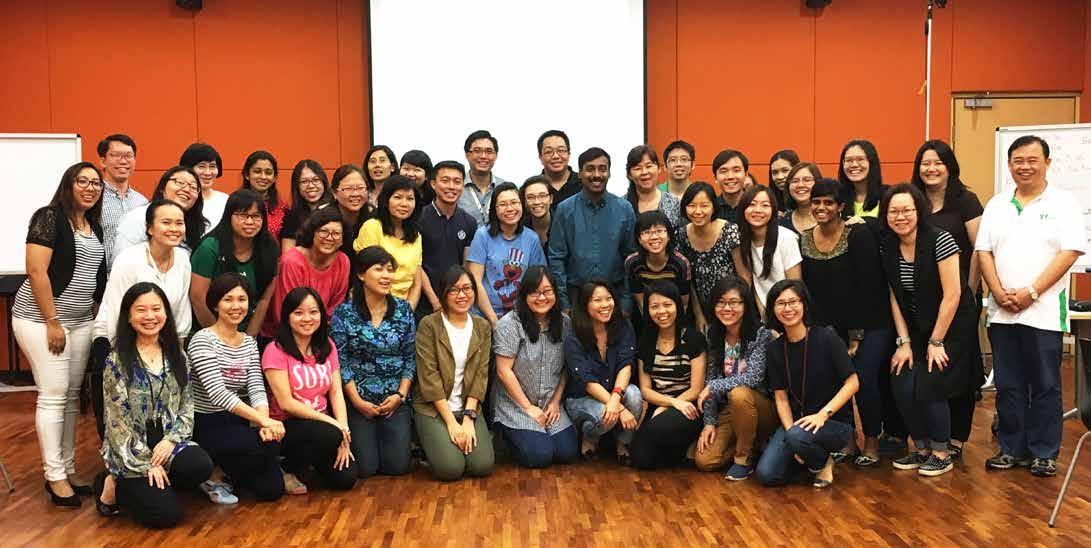
That trusted friend and colleague who encourages and supports, who provides constructive feedback no matter how uncomfortable it might be to hear, helps us reflect and improve our professional practice. Whether we are starting out as beginning teachers or already cruising with years of experience under our sails, having a trusted colleague-coach to turn to for professional support keeps us anchored and updated.
Coaching embodies the notion of collaborating with a critical friend. As a form of professional development, coaching allows for individualisation that can support us in tandem with workshops, networked learning communities and other forms of learning. This issue shares more about how coaching could serve to deepen teachers’ pedagogical understanding of what makes good teaching.
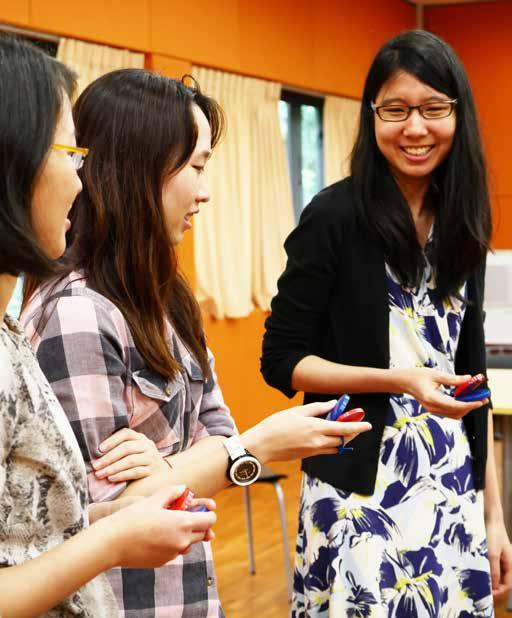
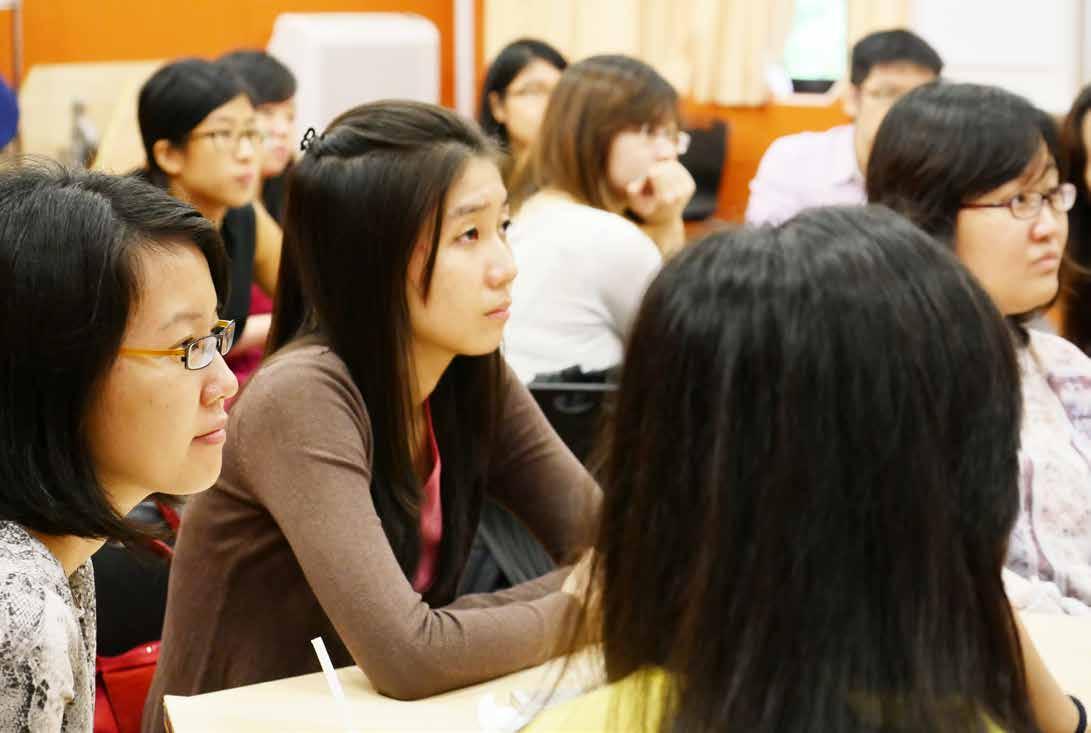
A coach could be a teacher-leader who is able to help the teacher identify his / her problems and bring their own solutions to light. Peer coaching also opens the door to reflective inquiry with another music colleague within or outside our school, to reflect on current practices; share ideas; teach one another; or solve problems in the workplace (Robbins, 1991).
When we engage in collaborative learning with others, the synergy within each community can bring about learning benefits that impact across and beyond the persons involved. Peer coaching — teacher-leaders coaching fellow colleagues or a Master Teacher guiding music teachers — contributes towards a stronger music teaching fraternity when we build on our diverse experiences.
Coaching is an extension of the workshop sessions that music teachers attend at STAR. Coaching provides room for teachers to receive more individualised attention from teacher-leaders, based on their specific professional learning needs.
By asking probing, open-ended questions, teacher-leaders such as our Music Master Teachers (MTTs) help the teacher reflect and analyse an issue of the teacher’s choosing. This not only helps the teacher raise his / her awareness of what makes engaged learning, but also increases teacher empowerment.
As part of the collaborative inquiry process, the coaching process often includes lesson observations. In these non-evaluative sessions, a critical friend helps us to see another perspective. The iterative coaching process could include cycles of pre-lesson dialogues, observation and co-teaching at lessons, and post-lesson discussions to discuss pedagogical moves for better learning and teaching.
offers
“
What
coaching
is authentic learning that provides differentiated support for professional learning. Coaching is not a quick fix; it is an approach that offers time and support for teachers to reflect, converse about, explore, and practice new ways of thinking about and doing this remarkably important and complex act called teaching. Perhaps most important, coaching puts teachers’ needs at the heart of professional learning by individualizing their learning and by positioning teachers as professionals.”
Post-lesson discussions
Pre-lesson discussions
Lesson observations / Co-teaching
The coaching process could also allow music teachers to contribute back to the professional learning of the music teaching fraternity. STAR Associates, for example, benefit from the coaching of a Senior Teacher, Lead Teacher or MTT, and go on to share their learning with other music teachers. Appointed with the support of school principals, these are teacher-leaders who engage in action research or pilot pedagogical projects before resources and findings are shared with all music teachers.
In one such pedagogical project, STAR partners STAR Associates in the lesson design and trialling of lesson modules for Teaching Living Legends – a course programme designed to deepen teachers’ understanding of Singapore’s diverse music traditions, and develop their pedagogical understanding to teach Singapore music in student-centric ways.
STAR Associates are engaged in an ongoing collaborative partnership over a year-long journey to design and trial lesson modules with guidance from MTTs. They meet to co-plan and design a series of lessons that incorporate instructional strategies that aim for lessons to be more engaging. Much of the learning is best deepened when teachers apply their lesson design in the classroom.
“The insightful coach knows exactly when and where and how to step in to mediate, to bridge, and to extend the learning. The true coach knows the power of establishing relationships, engendering genuine rapport, and empowering others with knowledge and skills.”
Fogarty, R. & Pete, B., 2007, p. 111.
Central to this iterative planning-trialling-review cycle is the learning for the MTTs and STAR Associates involved, so the lessons are also video-recorded to offer additional opportunity for selfreflection and review at the post-lesson dialogues.
The STAR Associates’ and MTTs’ year-long journey results in lesson packages to support the teaching of Singapore music. These lesson packages contain lesson ideas and pedagogical resources, and curated video clips of effective teaching moves. These are shared with teacher-participants at the Teaching Living Legends milestone programme, and also shared on OPAL for access by other music teachers where copyrights permit.
For the MTTs, such opportunities to work with our music teachers provide them with further insights into the individual classroom contexts of our 21 st century music classrooms. The time spent coaching the STAR Associates helps to guide their work in continuously designing professional learning for the larger fraternity. More significantly, teaching and coaching peers changes perspectives, deepening trust in the process of journeying together.
“ …feedback is not the same as criticism . …Criticism is tough on the person, where feedback is tough on the issues. Feedback is given for one reason only: to help the person learn, and is given at a point where the feedback-giver judges the other person can hear it.”
Diaz-Maggioli, G., 2004, p. 79.
Would you like to access the Teaching Living Legends pedagogical resources? Follow these steps to access more than 400 resources in the form of lesson ideas, Singapore music resources, lesson videos, music scores and more.
1. Log in to OPAL using this link
2. Using the search function, key in ‘teaching living legends’ or ‘tll’
3. View the contents of your choice
Find out more about STAR’s Teaching Living Legends professional development programme for music teachers in this video.
by Ms Eileen Liew Siew Hui of Teck Ghee Primary School
Students from Teck Ghee Primary School sharing a notation of their soundscape, inspired by Bernard Tan’s Little Things
Eileen is a STAR Associate partnering STAR to develop pedagogical resources for teaching of Singapore music. Here, she shares her thoughts on the coaching she received from Music Master Teacher Mrs Li Yen See.
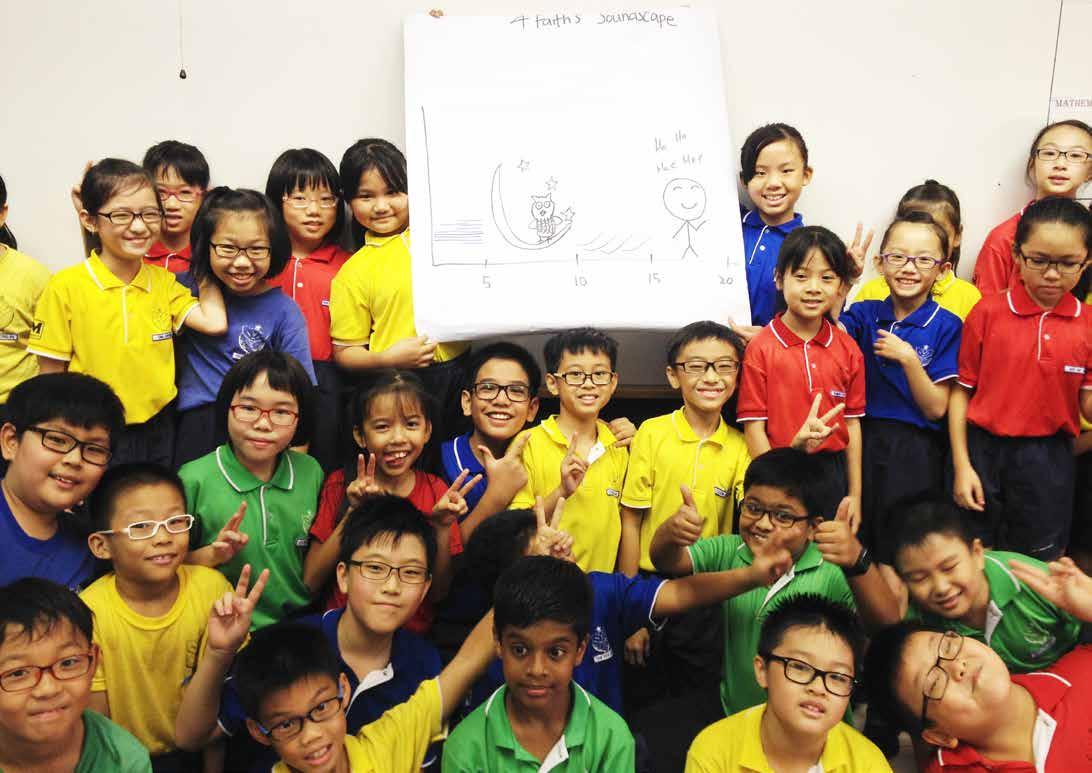
How did collaborating with a Master Teacher enhance your teaching practice?
There were ample opportunities for collaboration through the planning of instructional approaches and resources, and finally coteaching of the lessons. I appreciate the one-on-one conversations with Mrs Li about teaching and learning, considering alternatives, and discussing the impact of instructional approaches on students’ learning.
Co-teaching with her helped to develop my teaching competence and skills. The pre-lesson planning and design led to deeper forethought for each lesson and instructional approach used. I was able to consult Mrs Li while designing the lessons and there were ample opportunities for ongoing supportive feedback, based on direct observation during each lesson. Co-teaching with Mrs Li provided a safe environment for me to conduct the lessons. Through this partnership, reflection on my own teaching strengths and weaknesses became a shared process rather than remaining introspective.
How did the video recording of lessons help inform your practice?
From the video recordings, I was able to identify areas where my instructional approach worked or did not work with the class. This helped in the review process, and in subsequent lessons I could refine the learning experience for my students.
Can you share your thoughts on your inquiry journey?
Co-teaching provided a unique avenue for me to reflect on my teaching practice. The experience, with its ongoing feedback and debriefing, created a positive impact on my personal development as a teacher.
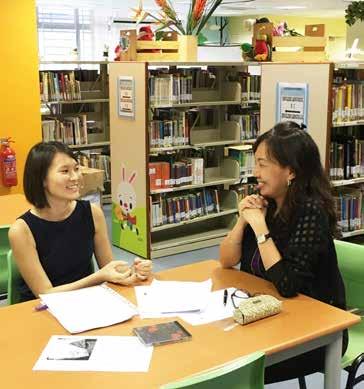

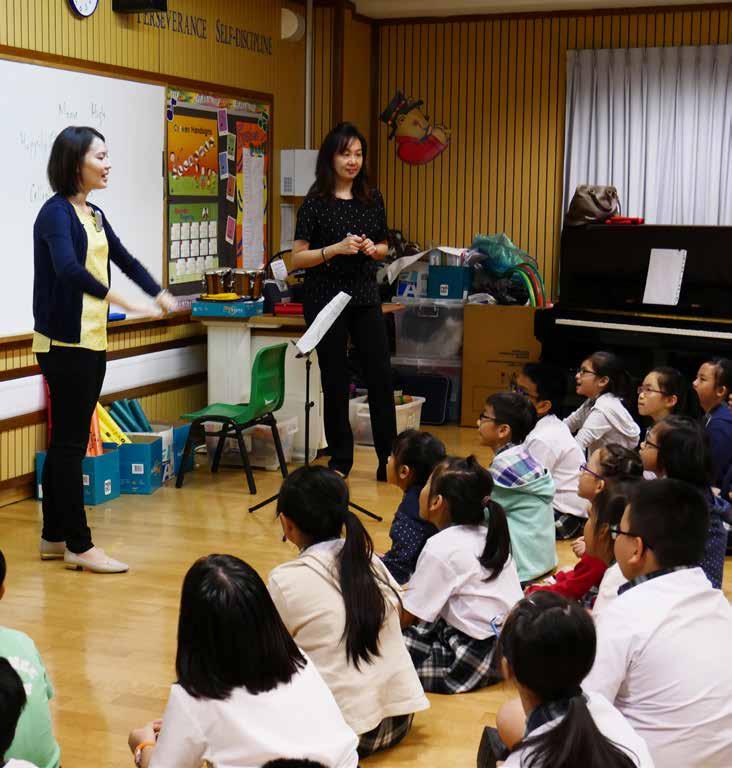
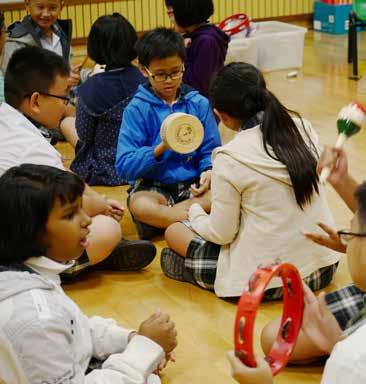
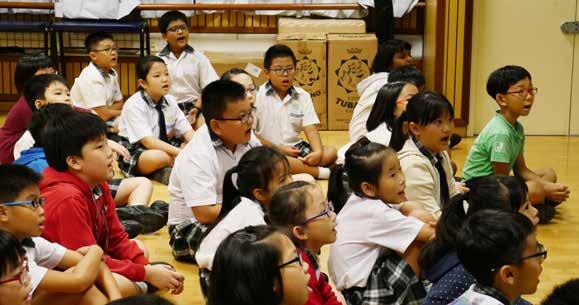
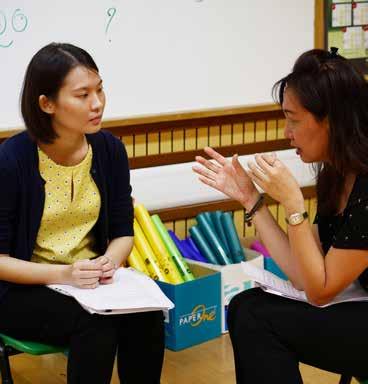
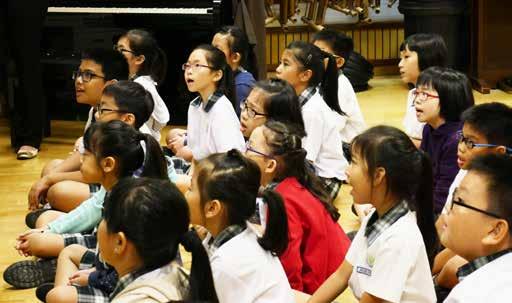

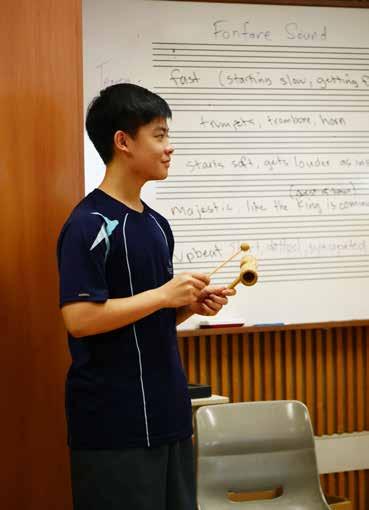
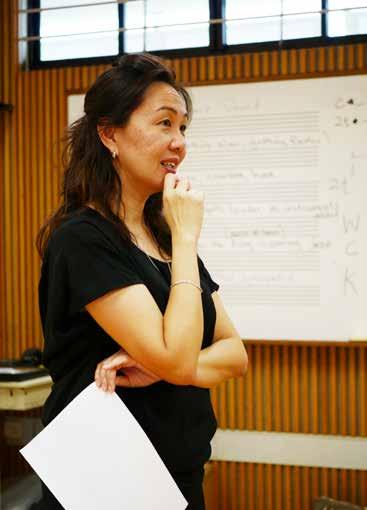

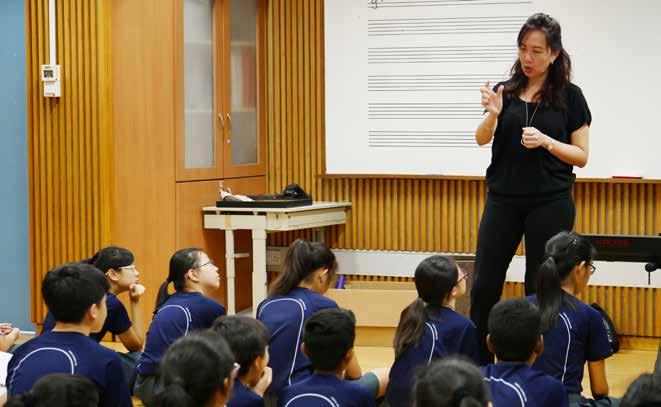

Peer coaching is a collaborative process through which two or more peers engage in sharing, often working together on a common focus of inquiry, and helping one another to learn through mutual feedback.
The process of peer coaching differs from one group of peers to another, as coaching allows much room for customisation. Peer coaching might not be linked by one common model of practice for different teams, but is usually founded upon a similar set of beliefs:
“…coaching develops the shared language and set of common understandings necessary for the collegial study of new knowledge and skills. Especially important is the agreement that curriculum and instruction need constant improvement and that expanding our repertoire of teaching skills requires hard work, in which the help of our colleagues is indispensable.”
(Showers, 1985, p. 44)
Materials Development
aboutStorytellingTeaching Practices
VideotapeAnalysisPlanningInterdisciplinaryUnits
Figure: Forms of Peer Coaching Activities
Coach as a Mentor
Co-planningLessons
Coachas aMirrorinthe Classroom
Extracted from Robbins, P. (1991). How to plan and implement a peer coaching program . Alexandria: Association for Supervision and Curriculum Development
The STAR Champions programme is another teacher-leadership programme designed by STAR. It aims to develop pedagogical leadership in the fraternity, and strengthen the community of learners in our music teaching fraternity.
STAR Champions are nominated by Cluster Superintendents with the support of their School Leaders. STAR develops these teacherleaders in their pedagogical and leadership competencies, and STAR Champions in turn work with their cluster music teachers in advancing pedagogical understanding of student-centric music education.
Taking on a networked learning community approach, peer coaching undergirds the STAR Champions programme. Each year, the STAR Champions focus on an area of professional learning. From questioning techniques to formative assessment in the music classroom, to creative strategies for teaching part-singing, STAR Champions learn from our MTTs, invited pedagogues and practitioners. More critically, they engage in purposeful dialogues with fellow STAR Champions, working with their peers to internalise and contextualise their learning into practical application in their own music classrooms.



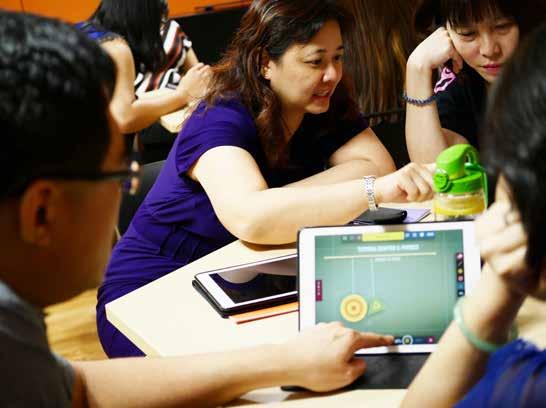
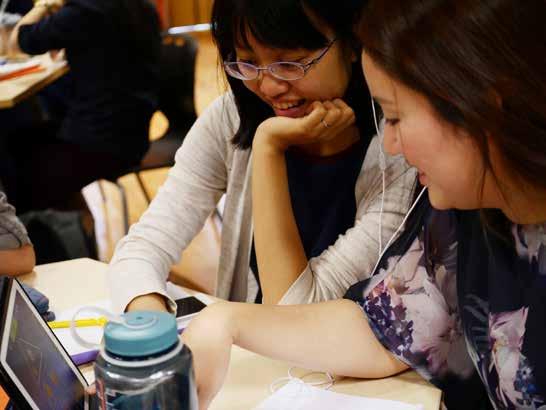
Teaching others helps our own learning process. According to the National Training Laboratories Institute in Bethel, Maine, teaching others encourages the highest rate of learning retention (Kumar, 2007).
Reading 10% 5% Lecture
Audio-visual 20%
Demonstration 30%
Discussion group 50%
Practice by doing 75%
Teaching others 90%
Figure: The Learning Pyramid Extracted from Kumar, A. (2007). Personal, academic and career development in higher education – SOARing to success . London and New York: Routledge Taylor & Francis Group.
https://www.youtube.com/watch?v=yim4NWzokyI
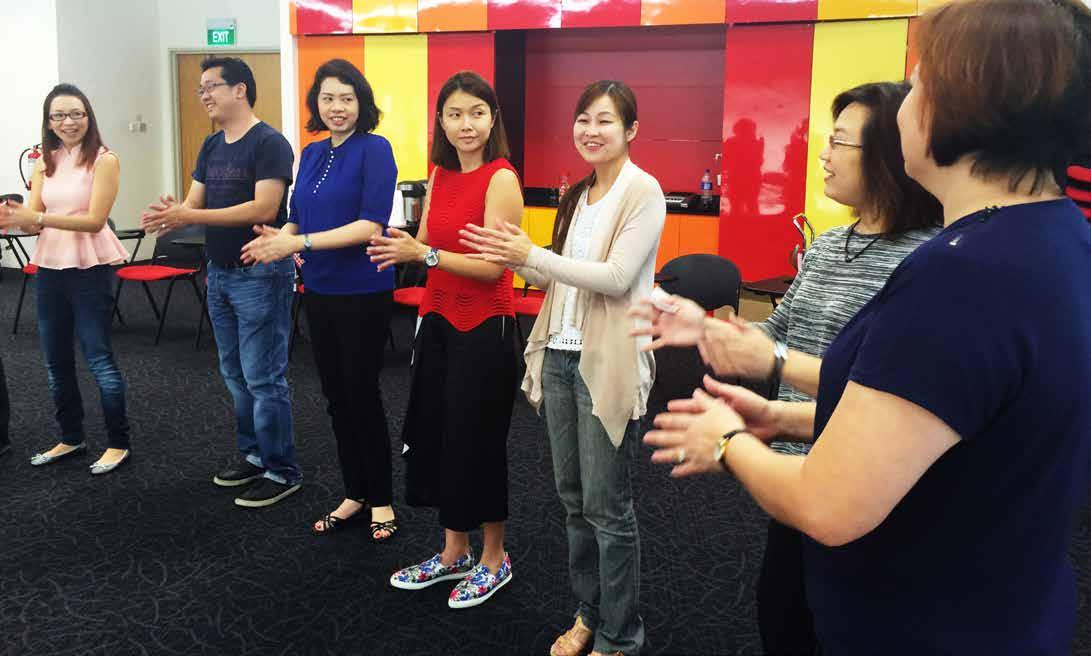
Besides the peer coaching opportunities with fellow STAR Champions, developing learning for other music teachers in their cluster schools provide further peer coaching opportunities.
After attending workshops at STAR and trialling the lessons in their own classrooms in the first semester, STAR Champions deepen their understanding by conducting cascading workshops for the music teachers in their cluster in the latter half of the academic year. They extend their pedagogical learning to the fraternity, and at the same time, gain new insights through the process.
Some STAR Champions also continue the peer coaching process beyond the workshops, following up the exchange of ideas and learning with their cluster teachers or fellow STAR Champions. In some instances, cluster teachers invite STAR Champions into their classrooms to continue the inquiry process, allowing further personalisation of learning in exploring pedagogical practices.
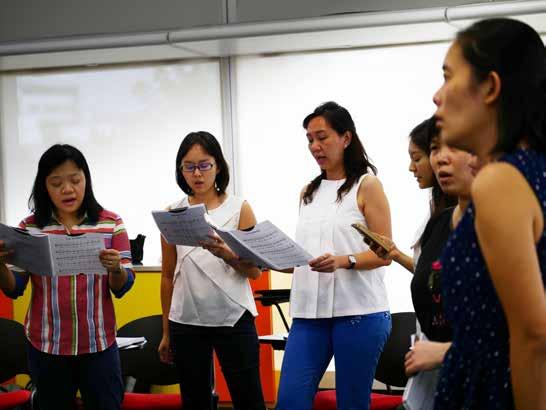
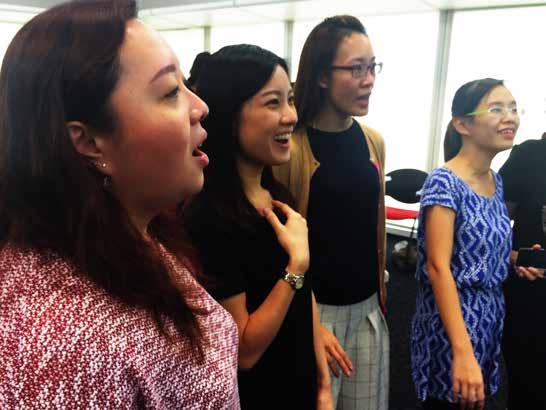


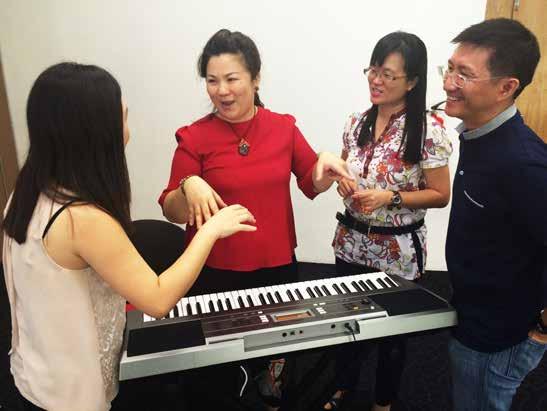
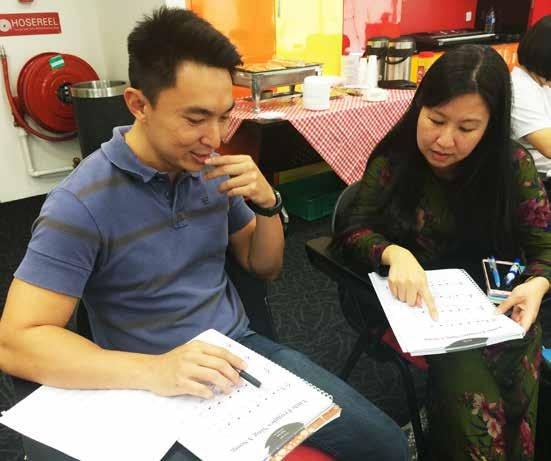
Music teachers exchanging ideas and learning together at STAR Champions (Primary) workshop.
by Mr Low Ying Ning of Hong Kah Secondary School
As the secondary Music STAR Champion for W4 Cluster, I took the initiative to connect with primary Music STAR Champions in my cluster. Through this network, I had the privilege to observe primary music lessons and converse with fellow music colleagues to better understand the work at the primary school level. I believe this helps me build on my students’ primary school music learning when I plan my music programme in school. At the same time, I can share this understanding with fellow secondary colleagues through my role as a STAR Champion. It is a privilege to be able to take a lead to bring out the rich human experience of music learning.
Ying Ning is a STAR Champion (Secondary) for West 4 Cluster Schools. He shares his perspective on the role he plays as a teacher-leader and how he grows through collaboration with primary and secondary music teachers in his cluster.
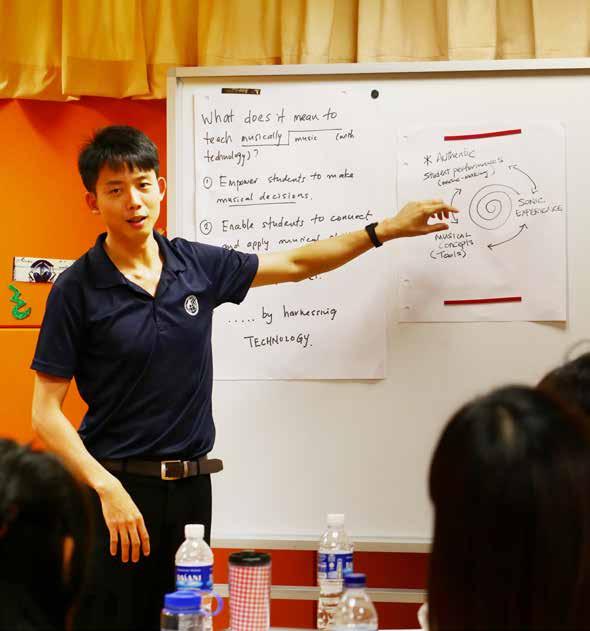
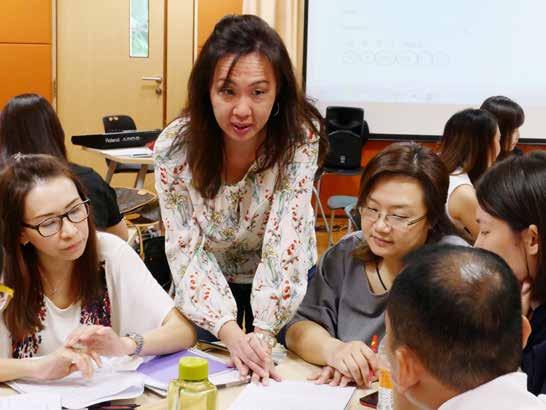
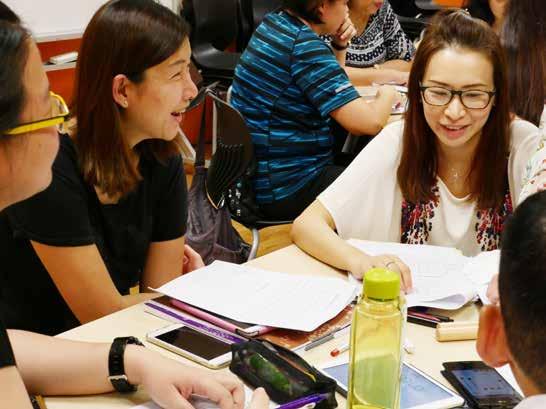
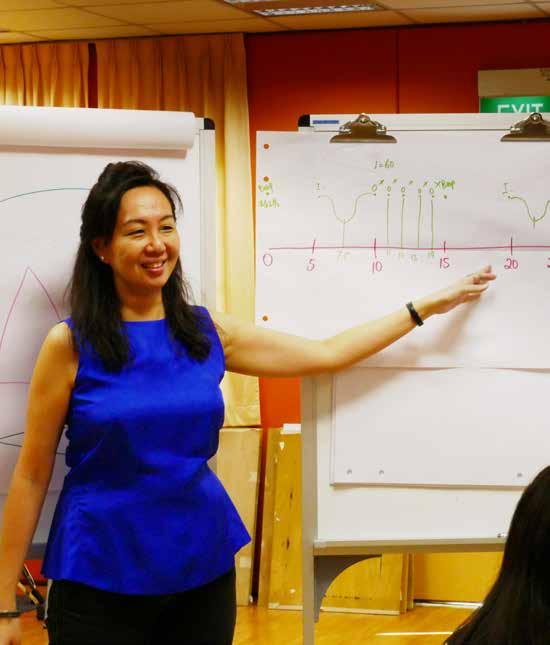
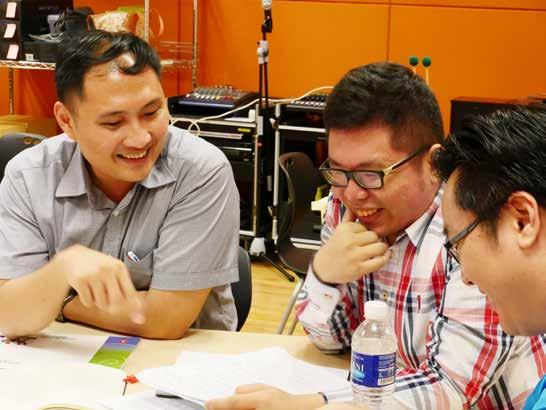

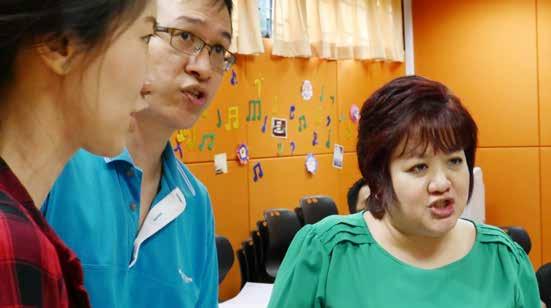
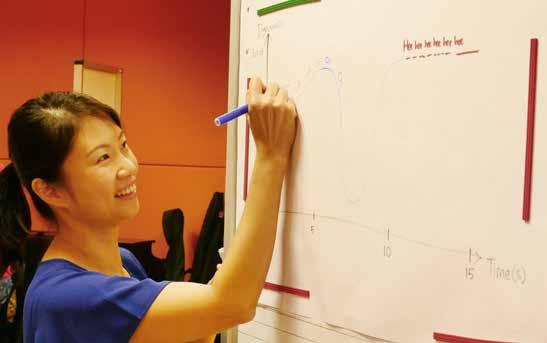
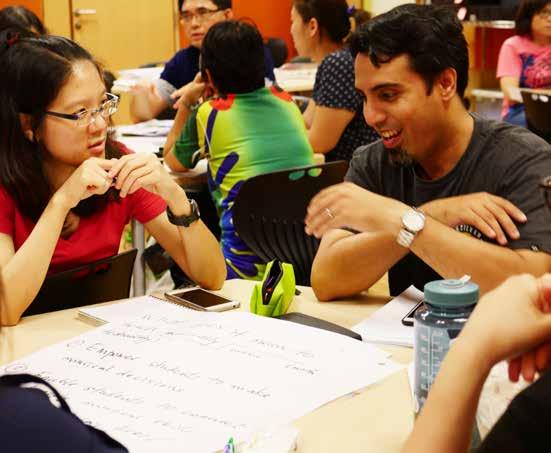
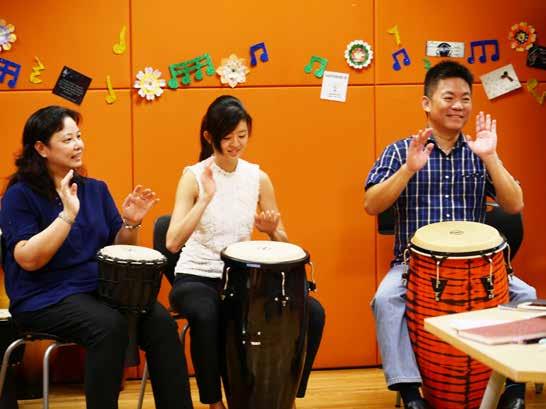

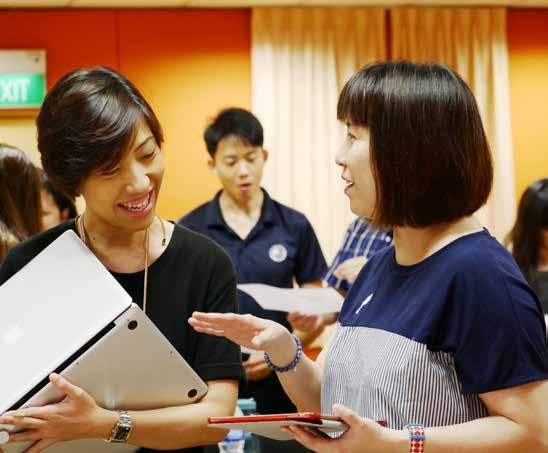
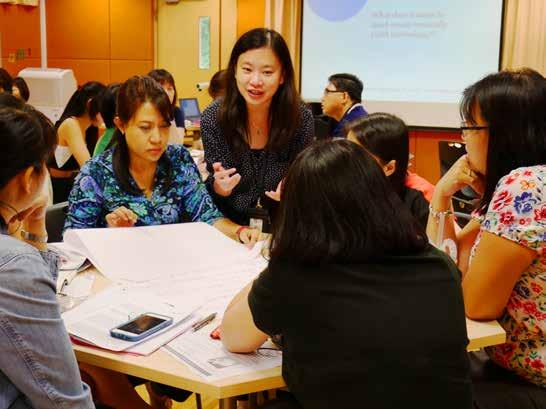
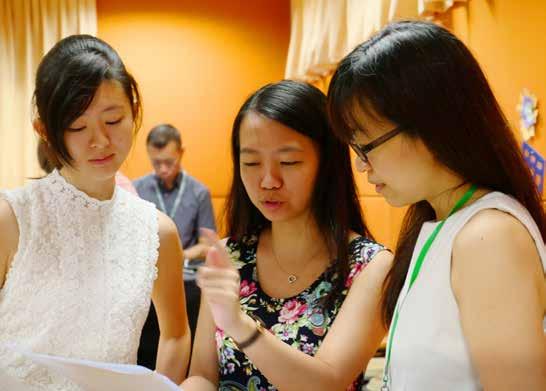
We can each get involved in the coaching process to better our teaching practice. Peer coaching offers a way for everyone to be involved, learning together with our peers.
Barbknecht & Kieffer (2001, p. 7) describe the wider impact of peer coaching thus:
“Peer coaching is teachers interacting with other teachers in a nonevaluative setting with a continuing goal of professional growth. This simple definition belies the significant impact of a peer coaching program. ... These teachers get to know each other professionally and personally; their positive teacher talk counters teacher isolation and assists them in building trusting relationships with other educators. Peer coaching’s trust-building activities encourage open communication about the complex and ever-changing role of teachers, and trusting and respectful relationships among faculty cannot help but spill over to student-teacher relationships. Building a caring environment that sustains relationships among faculty and between faculty and students has vast potential for creating improved learning for all.”
https://www.youtube.com/watch?v=WaEzgAUsiLs
“You can observe another teacher, it doesn’t matter what subject, doesn’t matter what grade level. Watching teachers, you can learn from them as a teacher. You’re going in there with your experiences and you’re watching someone else perform the same task that you do, generally, teaching students, but you’re seeing them do things that you don’t, or you do it differently, and maybe they do it better. So it’s a learning experience for the observer as well.”
https://www.teachingchannel.org/videos/teaching-coaching-models
“I think coaching is essential to teacher development. If I can receive more coaching from other people and, just even my colleagues and peers at other schools through this virtual model, it can only help us grow.”
Identify and connect with the peer whom you would like to work with
• Would you like to work with a peer teaching music or another subject?
• Would you like to work with a peer teaching in your school or teaching at a different school?
• Would you like to work with a peer teaching the same grade level or different grade level?
Set targets with your peer
• What is the specific area of focus you would like to work on? For example, is there any particular pedagogical approach or classroom strategy you would like to focus on?
• What form of coaching are you both comfortable with? For example, do you prefer to have peer observation, coteaching, discussion of lesson video, or a combination of different modes?
Agree on the documentation of learning
• How will each peer document his / her reflection and learning? For example, would use of a reflection journal be beneficial and would the contents of the reflection journal be shared with each other? If there is lesson observation involved, is there a particular form that would help set common ground for the observer as well as the peer being observed?
• How can feedback given to each other be documented?
Agree on the duration and frequency of peer coaching
• How long should the peer coaching last? For example, would you like to set it for one semester or one year?
• How often do you need to meet for reflective conversations? To what extent should the dialogue be done online or face-to-face?
Review the peer coaching process periodically
• How has the process been thus far? What are the adjustments that need to be made to the peer coaching process that was earlier agreed upon?
Focus on reflective inquiry
• How can each peer encourage the other in their reflective inquiry journey?
Barbknecht, A. & Kieffer, C. W. (2001). Peer coaching: The learning team approach . United States of America: Skylight Training and Publishing Inc.
Cheliotes, L. G. & Reilly, M. F. (2012). Opening the door to coaching conversations . United States of America: Corwin. Corwin Press. (Ed.). (2008). Mentoring, coaching, and collaboration . United States of America: Corwin Press.
Costa, A. L., & Kallick, B. (1993). Through the lens of a critical friend. Educational Leadership, 51(2), 49-51. http://www.ascd.org/publications/educational-leadership/oct93/vol51/num02/Through-the-Lens-of-a-Critical-Friend.aspx
Diaz-Maggioli, G. (2004). Teacher-centered professional development . Alexandria: Association for Supervision and Curriculum Development.
Fogarty, R., & Pete, B. (2007). From staff room to classroom: A guide for planning and coaching professional development United States of America: Corwin Press.
Kise, J. A. G. (2006). Differentiated coaching: A framework for helping teachers change . United States of America: Corwin Press.
Knight, J. (2007). Instructional coaching: A partnership approach to improving instruction . United States of America: Corwin Press.
Knight, J., Elford, M., Hock, M., Dunekack, D., Bradley, B., Deshler, D. D., & Knight, D. (2015, Feb). 3 steps to great coaching. JSD: The Learning Forward Journal, 36 (1). http://cabooseit.s3.amazonaws.com/makes_sense_strategies/3-steps-to-great-coaching.pdf
Kumar, A. (2007). Personal, academic and career development in higher education – SOARing to success . London and New York: Routledge Taylor & Francis Group.
Podsen, I. J. & Denmark, V. M. (2007). Coaching and mentoring first year and student teachers . United States: Eye On Education, Inc.
Robbins, P. (1991). How to plan and implement a peer coaching program . Alexandria: Association for Supervision and Curriculum Development.
Rogers, J. (2008). Coaching skills: A handbook . England: McGraw-Hill Education.
Schwarz, D. & Davidson, A. (2009). Facilitative coaching: A toolkit for expanding your repertoire and achieving lasting results . United States of America: Pfeiffer.
Showers, B. (1985). Teachers coaching teachers. Educational Leadership, 42(7), 43-48.
Innovative Coaching Models
https://www.teachingchannel.org/videos/teaching-coaching-models
Insights into Peer Coaching: Les Foltos
https://www.youtube.com/watch?v=yim4NWzokyI
Peer Coaching
https://www.youtube.com/watch?v=WaEzgAUsiLs